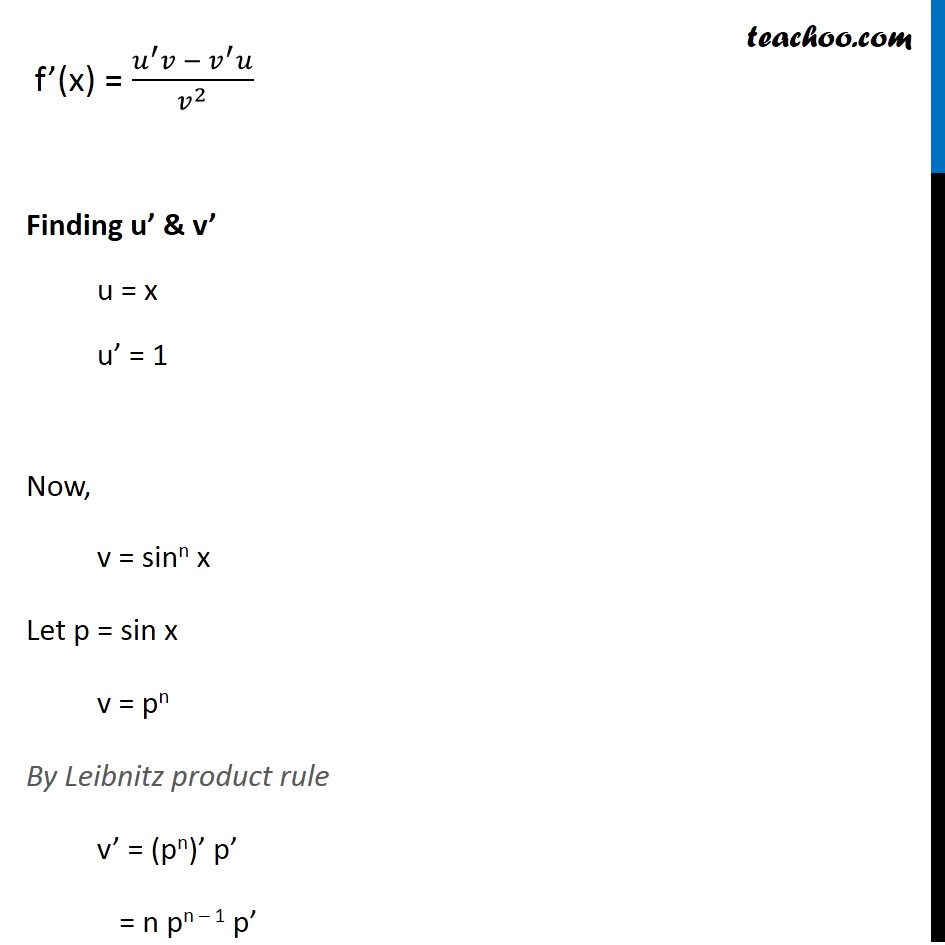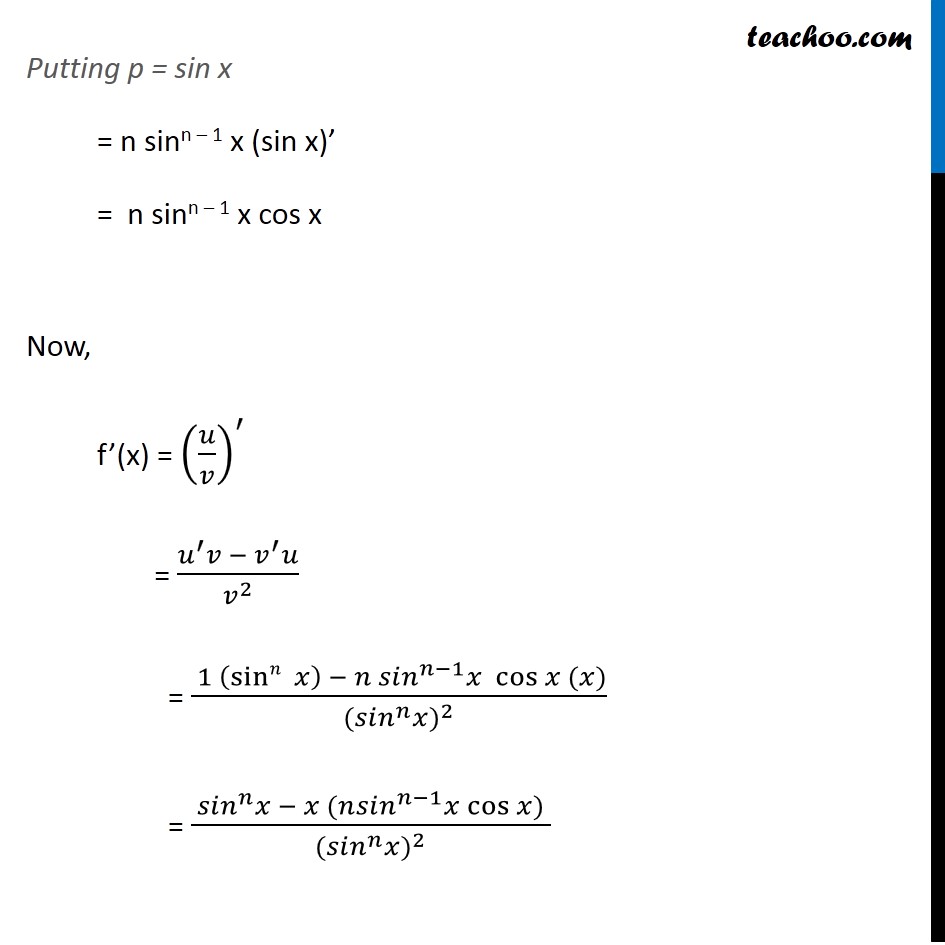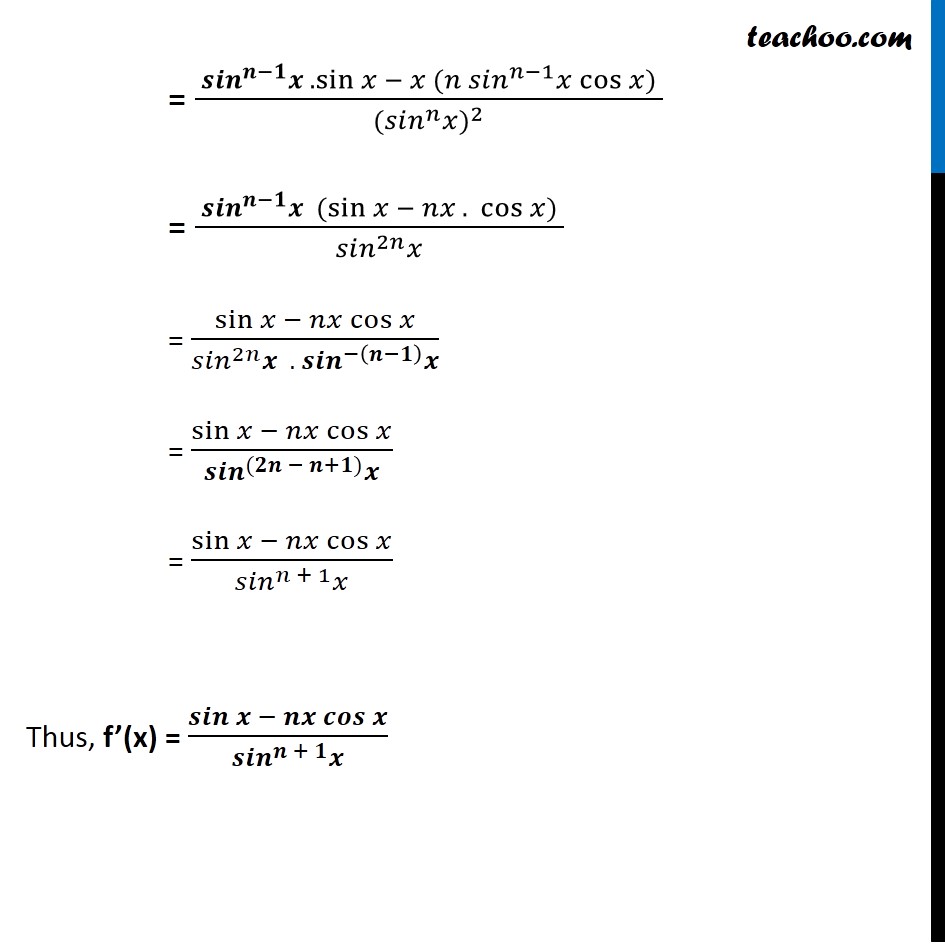



Miscellaneous
Last updated at December 16, 2024 by Teachoo




Transcript
Misc 30 Find the derivative of the following functions (it is to be understood that a, b, c, d, p, q, r and s are fixed non-zero constants and m and n are integers): 𝑥/(𝑠𝑖𝑛𝑛 𝑥) Let f(x) = 𝑥/(𝑠𝑖𝑛𝑛 𝑥) Let u = x & v = sinn x ∴ f(x) = 𝑢/𝑣 So, f’(x) = (𝑢/𝑣)^′ Using quotient rule f’(x) = (𝑢^′ 𝑣 −〖 𝑣〗^′ 𝑢)/𝑣^2 Finding u’ & v’ u = x u’ = 1 Now, v = sinn x Let p = sin x v = pn By Leibnitz product rule v’ = (pn)’ p’ = n pn – 1 p’ Putting p = sin x = n sinn – 1 x (sin x)’ = n sinn – 1 x cos x Now, f’(x) = (𝑢/𝑣)^′ = (𝑢^′ 𝑣 −〖 𝑣〗^′ 𝑢)/𝑣^2 = ( 1 (sin𝑛〖 𝑥〗 ) − 〖𝑛 𝑠𝑖𝑛〗^(𝑛−1) 𝑥 cos〖𝑥 (𝑥)〗)/〖〖(𝑠𝑖𝑛〗^𝑛 𝑥)〗^2 = ( 〖𝑠𝑖𝑛〗^𝑛 𝑥 − 𝑥 (𝑛〖𝑠𝑖𝑛〗^(𝑛−1) 𝑥 cos〖𝑥) 〗)/〖〖(𝑠𝑖𝑛〗^𝑛 𝑥)〗^2 = ( 〖𝒔𝒊𝒏〗^(𝒏−𝟏) 𝒙 . sin〖𝑥 − 𝑥 (𝑛 〗 〖𝑠𝑖𝑛〗^(𝑛−1) 𝑥 cos〖𝑥) 〗)/〖〖(𝑠𝑖𝑛〗^𝑛 𝑥)〗^2 = ( 〖𝒔𝒊𝒏〗^(𝒏−𝟏) 𝒙 〖(sin〗〖𝑥 − 𝑛𝑥 . 〗 cos〖𝑥) 〗)/(〖𝑠𝑖𝑛〗^2𝑛 𝑥) = sin〖𝑥 − 𝑛𝑥 cos𝑥 〗/(〖𝑠𝑖𝑛〗^2𝑛 𝒙 . 〖𝒔𝒊𝒏〗^(−(𝒏−𝟏) ) 𝒙) = sin〖𝑥 − 𝑛𝑥 cos𝑥 〗/(〖𝒔𝒊𝒏〗^((𝟐𝒏 − 𝒏+𝟏)) 𝒙) = sin〖𝑥 − 𝑛𝑥 cos𝑥 〗/(〖𝑠𝑖𝑛〗^(𝑛 + 1) 𝑥) Thus, f’(x) = 𝒔𝒊𝒏〖𝒙 − 𝒏𝒙 𝒄𝒐𝒔𝒙 〗/(〖𝒔𝒊𝒏〗^(𝒏 + 𝟏) 𝒙)